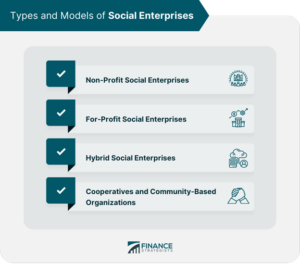Business
Woolies CEO Storms Out on Self Checkout After Realising He’s Being Filmed
Woolworths CEO Brad Banducci has got up and walked out mid check-out, after realising he was on camera the whole time.
“I think we’re done here guys,” a furious Banducci said, getting up and walking out of the supermarket.
Realising that he’d been caught red handed scanning an avocado as a brown onion, he demanded to know if his shop was on or off the record.
“Absolutely everything is recorded and tracked you idiot,” an aide told him before convincing him to continue his checkout.
“Can we take that bit out?” he pleaded. “Sorry, I shouldn’t have done that”.
The post Woolies CEO Storms Out on Self Checkout After Realising He’s Being Filmed appeared first on The Shovel.
Wall Street’s New Prison Scam
As part of a growing effort to stop prison telecom monopolies from charging exorbitant fees for calls between prisoners and their families, last year Minnesota became one of the first states to make all phone calls free for prisoners. And to eliminate the kickback system perpetuating the scheme, the state barred its agencies from collecting commissions on prison phone services, as well as on video calling and e-messaging.
But records obtained by The Lever show Minnesota’s Department of Corrections still collected hundreds of thousands of dollars in kickbacks last year from commissions on other prison services private telecom companies controlled — including money transfers, music access, and other entertainment behind bars. All in all, the records suggest the telecom firms brought in nearly $3 million in revenue from an ever-increasing array of non-phone prison services in the state.
Read the full story for free.
Sign up for a free subscription to The Lever to gain access to this story and more.
Already have an account? Sign in
Taylor Swift Now 90% of All Global Economic Activity
The sale of Taylor Swift albums, concert tickets, movies and merchandise now accounts for more than 90% of global economy activity, new analysis shows.
Research by the London School of Economics found that of the US $109 trillion in global GDP in 2023, $102 trillion was related to Taylor Swift.
“Apart from people buying air-fryers or oversized water bottles, there’s really not much else going on, economically speaking,” Economist Ryan Beaumont said. “National governments think they have control over their economies. But in reality, economic activity is determined by whether or not Taylor Swift announces a new album at the Grammys”.
He said the global economy was now basically just Taylor Swift. “If she doesn’t release a new album each year then the international economy will collapse. It’ll be worse than we saw in 2008”.
He warned there was already a risk that we were entering a Taylor Swift bubble. “Realistically, she’ll probably need to release two albums next year in order to maintain GDP growth requirements. Then three, then four. By 2030 we’ll need a new album daily or people will lose their homes”.
The post Taylor Swift Now 90% of All Global Economic Activity appeared first on The Shovel.
Labour cancels Starmer/Lammy event rather than face Gaza protest
Yet again ‘Labour’ leadership unwilling to face anger of voters
Keir Starmer and Shadow Home Secretary David Lammy appear to be running scared yet again of the anger of protesters demanding a halt to Israel’s genocide in Gaza.
The pair were due to appear in Tottenham this afternoon for a policy announcement, but Skwawkbox understands that the press conference has now been cancelled after details of the venue and meeting time leaked and human rights activists planned to gather at the event to protest at Starmer’s support for Israel’s mass murder of Palestinian civilians.
The cancellation is one of a number of events abandoned by Labour rather than face the outrage of those who simply want an end to the slaughter. Keir Starmer has still not even mentioned the International Court of Justice findings against Israel in the genocide case brought by South Africa, such is his inability to justify his stance or face the reality of Israel’s war crimes, though he has used his social media to post repeatedly about business and football.
SKWAWKBOX needs your help. The site is provided free of charge but depends on the support of its readers to be viable. If you’d like to help it keep revealing the news as it is and not what the Establishment wants you to hear – and can afford to without hardship – please click here to arrange a one-off or modest monthly donation via PayPal or here to set up a monthly donation via GoCardless (SKWAWKBOX will contact you to confirm the GoCardless amount). Thanks for your solidarity so SKWAWKBOX can keep doing its job.
If you wish to republish this post for non-commercial use, you are welcome to do so – see here for more.
It Just Got More Expensive To Fight Corporate Abuse
From credit card terms of service to employment contracts, millions of people are trapped in agreements that only allow them to challenge corporate abuse through a private system of arbitration rather than in a court of law. Now, the biggest player in that private system has posted new fees that experts say could make it more difficult for consumers and workers to hold corporations accountable.
On Jan. 15, the American Arbitration Association (AAA), the largest private provider of arbitration services in the world, quietly implemented new fees for individuals filing a mass arbitration case seeking monetary damages or contract relief from a company.
The new fees include a $3,125 initiation fee that must be paid before AAA officials determine if the case can move forward. If the case does move forward, then consumers and employees will have to pay case management fees that were previously paid by the companies as well as new arbitrator appointment fees, according to an analysis by Goodwin Procter, one of the largest law firms in the world that specializes in a broad range of topics.
“The new fee schedule significantly lowers case-initiation fees for businesses and shifts costs to individual claimants,” the law firm wrote.
In practice, the move could potentially lower initial filing fees for consumers and employees at the start of an arbitration process, but then add significant costs if their cases move forward.
AAA’s new rule and fee changes come amid regulatory efforts to rein in the rise of the arbitration industry, which critics say oftentimes forces consumers and workers into contracts that prevent class-action lawsuits and bars them from seeking a jury by trial.
The massive expansion of what is effectively a privately administered tax by AAA — whose revenues have roughly doubled to nearly $150 million in the past 10 years — could further limit relief for consumers and employees, experts say.
“[AAA’s fee change] is shifting the cost towards consumers who are already trapped in these forced arbitration agreements and sent into really expensive processes that generally favor corporations,” Katie Van Dyck, senior legal counsel at the American Economic Liberties Project, told The Lever.

Hold Them Accountable With A Donation
Give a one-time donation in any amount to fund The Lever‘s mission to hold the powerful accountable through reader-supported investigative journalism. Every cent helps.
Mass arbitrations cases are similar to class-action lawsuits, but are handled through a private process that experts say benefits corporations rather than the consumers and employees who are trapped in them.
Arbitration agreements are often forced on consumers and workers without their knowledge and are hidden in the fine print attached to agreements governing workplaces and transactions. These agreements limit how an employee or consumer can dispute a corporate decision. They essentially prohibit people from going to a jury trial, forcing them instead into a process overseen by a third-party arbitrator.
Consumers may file arbitration cases against companies for price-fixing, defective products, or issues with services they’ve purchased. Employees may file arbitration cases against their employers for wage theft, contractual disputes, and other reasons. Arbitration agreements can carry high fees for both parties, and both groups have to pay the fees before an arbitration case can begin.
The new non-refundable fee of $3,125 will apply to all mass arbitration cases with 25 or more claimants and when the representation for the claimants is “consistent or coordinated across cases,” AAA announced in a press release on Jan. 15.
Under the AAA’s previous rules, companies were forced to pay potentially tens of millions of dollars when consumers and employees filed mass arbitration cases against them. Now companies will have to pay a flat fee of $8,125 and then an arbitration official will decide if the cases can move forward.
“What I think is going to happen in a lot of these cases is consumers are going to pay $3,125, the company is going to pay $8,125, and then a process arbitrator will come in and find the claims improper and dismiss them,” Alexi Pfeffer-Gillett, an assistant law professor at Washington and Lee University, told The Lever. “Then the consumers will have to go to court and ask the court to overturn [the arbitration ruling], and the courts are usually very reluctant to overturn arbitration decisions.”
AAA initially did not respond to direct questions regarding the new fee change, but pointed to a press release outlining the new changes.
The press release states that the new fee changes are being implemented in response to the “increasing number of mass arbitration cases since 2018, primarily driven by arbitration clauses in consumer-business and employee-employer contracts.”
AAA says the new $3,125 fee will help ensure “integrity” of future cases and will “enhance the accuracy of filings and pleadings, thereby reducing delays and complexities. Parties must now affirm that the information provided for each case is true and correct, addressing concerns about the submission of incorrect case filings.”
AAA’s main competitor — JAMS, formerly known as Judicial Arbitration and Mediation Services, Inc. — charges $250 for cases involving consumers.
“More People Climb Mount Everest… Than Win”
Thirty years ago, arbitration cases between people and a company were exceedingly rare.
But that began to change in the early 2000s — when corporations realized that forced arbitrations could be used to circumvent costly and damaging class-action lawsuits.
According to The New York Times, “the move to block class actions was engineered by a Wall Street-led coalition of credit card companies and retailers.” Among the early proponents of the move was corporate lawyer John Roberts — who would go on to become chief justice of the Supreme Court when it issued rulings in 2011 and 2013 that allowed contracts to ban class-actions in favor of arbitration agreements.

E-BOOK: John Roberts’ Revolution
In our 135-page publication exclusively for supporting subscribers, we reveal point by point how a court led by a celebrated “moderate” like John Roberts has become the most extreme in a century — and what can be done to stop it.
Since then, arbitration agreements have become so commonplace that more than 60 million workers across the country are now under one. These agreements often carry a confidentiality clause, so when many workers file a case against their employers, many of their coworkers have no idea, the Labor Department noted in a March 2023 blog post.
“What was once a relatively rare employer practice that only affected about 2 percent of workers in the early 1990s has grown to include 56 percent of all non-union private sector employees and 65 percent of employees making less than $13 per hour,” the Labor Department wrote.
Arbitration agreements have also become ubiquitous in the consumer realm. In 2015, a federal report found that more than half of all credit card contracts included arbitration clauses, covering as many as 80 million people. A coinciding survey of credit card users found that three quarters didn’t know whether they were subject to an arbitration agreement — and less than 7 percent of those who were covered by such a clause understood that it limited their ability to sue.
The arbitration industry itself appears rigged in favor of big business. While arbitrators for a given case are supposed to be chosen at random, a 2018 study found that companies often find ways to select pro-business arbitrators who are more likely to rule in their favor. According to researchers, if the system was actually truly random, consumers on average would be getting $50,000 more in arbitration awards.
For workers and consumers, the rise of arbitration has been disastrous. One study cited by the Labor Department estimates that the rise in arbitration agreements has resulted in workers filing 98 percent fewer wage theft and other unfair labor claims than workers not under arbitration agreements. And consumer regulators found that credit card companies with arbitration agreements in their contracts have used such clauses to block class-action lawsuits 65 percent of the time.
The problem is getting worse. The American Association for Justice, a lobbying group for plaintiff’s lawyers, found that forced arbitration cases increased during the pandemic, while consumer win rates decreased.
“Just 577 Americans won a monetary award in forced arbitration in 2020, a win rate of 4.1 percent — below the five-year-average win rate of 5.3 percent,” noted the report. “More people climb Mount Everest in a year (and they have a better success rate) than win their consumer arbitration case.”
The state of affairs has led the Labor Department to sue companies that force their employees into exploitative situations.
In January 2023, the Labor Department was able to force an Arizona company to pay $5.75 million in back wages to its employees who were misclassified as independent contractors. The company tried to force the department into an arbitration case on the matter, but a federal court ruled that the Labor Department has the authority to recover unpaid wages and that the case could be handled in the courts rather than in arbitration.
The Labor Department won a similar ruling in 2021, when a New York federal judge ruled that employee arbitration agreements do not apply to federal regulators who did not sign arbitration agreements, thus allowing regulators to pursue wage theft claims in court.
“An Unjustified Attack On Arbitration”
While the Consumer Financial Protection Bureau (CFPB) is charged with safeguarding consumers against abusive practices, the agency has limited ability to help people trapped in arbitration agreements. In 2017, President Donald Trump signed legislation overturning a CFPB rule banning forced arbitration clauses in certain financial contracts. The shift made it much more difficult for consumers to pursue class-action lawsuits against companies.
Recently lawyers for consumers and workers have attempted to turn the table on the rise of arbitrations agreements by pursuing mass arbitration cases similar to class-action lawsuits.
In a high-profile case from 2018, more than 12,500 Uber drivers filed arbitration cases against Uber for alleged wage violations. Uber, the tech-forward taxi company, initially refused to pay the arbitration fees for all the cases, but later agreed to pay more than $146 million to settle wage disputes eventually filed by more than 60,000 drivers.

Learn All Our Investigative Tricks
Score a copy of our Citizens’ Guide to Following the Money and Holding the Powerful Accountable, free with a paid subscription. The e-book gives you all the tools and tricks our reporting team uses to scrutinize power.
Problems with arbitration agreements are now so common that in January 2023, the CFPB proposed establishing a registry of common terms found in potentially exploitative contracts that waive legal protection for consumers.
“Some companies seek to censor their customers and strip them of their rights by inserting fine print into non-negotiable contracts,” CFPB Director Rohit Chopra said in a press release. “The CFPB is proposing a registry of these contract clauses to find out where people are unable to speak up when they’ve been harmed.”
The U.S. Chamber of Commerce, a historically pro-business and anti-consumer advocacy group, called the proposal “an unjustified attack on arbitration and violates the law.”
Echoing other proponents of arbitration clauses, the Chamber claimed that arbitration was a less-expensive way for consumers to seek justice than pursuing costly lawsuits. But the new AAA fees could suggest otherwise.
According to Goodwin Procter, the new fee changes will help ensure case integrity and force lawyers to vet their clients’ claims before filing arbitration cases. But the megafirm admits the changes will also benefit businesses.
“It is clear that the AAA’s update has reallocated the costs and burdens associated with mass arbitrations, which the mass arbitration model previously sought to avoid,” Goodwin Procter wrote in its response to AAA’s fee change.
Editor’s note: This story has been updated to provide more precise details about AAA’s new fee schedule.
Scott Morrison Appointed Head of Safety at Boeing
The former PM has been officially appointed to the role, after impressing management during a 12 month stint in charge of affixing doors to 737s, a task the company says he has completed successfully almost all of the time.
“Of the hundred or so doors that Scott has welded to aeroplanes, only one or two have fallen off mid-flight. That’s a pretty remarkable hit rate,” a Boeing spokesperson said.
“We’ve been impressed with his attention to detail. His cost calculations have only been out by $60 billion or so. And while he did initially forget to order the doors to affix to the planes, he did manage to pick up some cheaply at the last minute from Poland”.
The company also singled out Morrison’s unique work ethic. “He’s managed to finish quite a lot of his shifts without going on holidays, which we hear is a real improvement for him. And when we had that disaster on the Alaska Airlines flight, he came back from Hawaii to deal with it within just a few weeks”.
In a statement, Morrison said he was looking forward to the new challenge. “This new role has really opened a lot of doors. Some of them we weren’t able to close again. But most of them are now safely secured to the aircraft”.
The post Scott Morrison Appointed Head of Safety at Boeing appeared first on The Shovel.
Economists Say Employment Market Is Strongest They’ve Ever Seen, After Someone Offers Scott Morrison a Job
Leading economists say it has never been easier to find work, with one company so desperate for workers it was left with no choice but to hire a lazy, talentless, cos-playing glorified sales rep from the Shire.
“The unemployment rate is now officially zero – the country’s least employable man has found a job,” the Centre for Economic Studies said in a statement today.
Human Resources expert Jessica Bailey said she had never seen anything like it. “You know employers are struggling for talent when they’re offering a job to a guy who once miscalculated a budget by $60 billion, forgot to order vaccines during a pandemic and had to ask his wife whether rape was bad,” she said.
“I mean, imagine the reference checks on this guy. His former colleagues have described him as ‘a horrible person’, ‘a fraud’ and ‘a complete psycho’. The French President called him a liar. But obviously the company in question has got to the reference check stage and gone, ‘fuck it, there’s no-one else, we’ll have to hire him’”.
The post Economists Say Employment Market Is Strongest They’ve Ever Seen, After Someone Offers Scott Morrison a Job appeared first on The Shovel.
Redesigning Business for Sustainability
by Daniel Wortel-London

Members of a women’s cooperative in Cameroon. (UN Women/Ryan Brown, Creative Commons 2.0)
Can businesses become sustainable? Certainly—at least in theory. In recent years, new business models have emerged that attempt to place business on an ecologically healthy footing. The doughnut economy, the regenerative economy, sufficiency enterprises, and postgrowth and degrowth businesses: These and other experiments represent ways of doing business that not only create customer and firm value, but address social and environmental needs as well. In a context of limits to growth, such experiments are excellent vehicles for providing the goods and services people need, within boundaries set by nature.
But relatively few businesses are adopting these models. On the contrary: Businesses drive resource extraction and erosion of natural capital and therefore are key drivers of our planet’s environmental crisis. For example, just 100 corporations account for more than 70 percent of global carbon emissions on earth.
Presumably the primary reason businesses aren’t embracing more progressive models isn’t ignorance, greed, or a lack of commitment. It’s a question of design. The way businesses are governed and incorporated tends to promote unsustainable production and consumption and blocks them from undertaking activities that can make a net-positive impact on our environment.
But these designs can be changed—and more and more firms are changing them. Business leaders are broadening business governance to include different voices, expanding corporate charters to include environmental responsibilities, and reforming how their businesses distribute profits. The enterprises emerging through these reforms, from B-corps to worker cooperatives to nonprofit enterprises, are addressing head-on the task of reducing our economy’s environmental impact.
Misaligned Incentives
The way businesses produce, the way they encourage consumption, and the way they design products and choose suppliers have enormous environmental implications. Environmentalists have looked to government intervention to curb bad practices and encourage good ones—through regulations, taxes, subsidies, reporting requirements, and other measures.

A Walmart shareholders meeting. (Walmart, Creative Commons 1.0)
Regulation creates, at best, a hostile relationship between businesses and government (and environmentalists). But the bigger problem is that regulatory tools don’t touch incentives internal to businesses. To change the way businesses make things and deliver services, we need to think first about how businesses are designed.
For example, corporate law in the USA imposes fiduciary duties on directors to act in the best interest of their shareholders. A corollary to this principle is that corporate directors must act to maximize shareholder value, defined in terms of distributed profits. In pursuit of maximized profits, corporate directors can ignore the health of the environment, labor, or local communities in their decision-making. In fact, they can be held legally liable if caring for the interests of these other stakeholders depresses profits.
Alternative Designs
Other ways of designing businesses go to the heart of their operations.
First, we can change the purpose of businesses to incorporate or even prioritize environmental benefits. Most states have adopted legislation creating new legal forms of enterprise, such as social purpose corporations and benefit corporations, that specify that corporate managers must take social or environmental considerations into account when making decisions. These businesses, such as Patagonia, continue to function in many ways as conventional firms. They have products, services, customers, expenses, and revenues like any other business. The difference is that shareholders can’t sue them if these firms decide to forgo profits in favor of environmental protection.
Second, we can change the way businesses are governed. Currently, most answer to a relatively narrow range of investor shareholders. But other ways of governing firms can “embed” environmentalism and worker protection into decision-making. In cooperatives and mutual associations, for example, local workers can ensure that business decisions benefit communities threatened by environmental deterioration rather than geographically distant shareholders. Open-source and commons-based enterprise open the doors to environmental protection even wider. The business “Faith in Nature” has even appointed a “Nature Guardian” to its board. Its job is to give nature a voice and a vote in business strategy. Such governance structures provide an additional internal incentive—and legal grounding—for businesses to take environmental and social considerations into account.

Alternative ways of designing a business to encourage sustainability. (Financestrategists, Creative Commons 2.0)
Finally, we need to take on the elephant in the room: profit. If businesses aim to maximize profit, they will be compelled to maximize production and consumption. This dynamic is difficult to balance with any environmental commitments a business might otherwise have made.
But there are other ways of doing business; nonprofit enterprises are a good example. While these firms buy and sell services like any other, the profit they make is legally required to be used for social or environmental purposes, rather than being distributed to private owners or shareholders. Growth is not the goal; maximizing the firm’s positive environmental impact is. And if making additional profits threatens to reduce this impact, profits are sacrificed.
Together, these reforms of the purpose, governance, and profit orientation of businesses can dramatically shift their orientation toward sustainability. They will be incentivized to respect planetary boundaries not by government fiat but using their own by-laws. Moreover, they could welcome government sustainability initiatives to the extent that those initiatives make their own job easier. All of this can help make an economy more resilient—and more just.
Real Potential for Real Change
Businesses with a progressive orientation do in fact exist. There are currently 6,000 certified B corps in 60 countries around the world, up from 2,500 in 2018. In the EU alone there are more than 2.8 million “social and solidarity economy” firms—more than 10 percent of all businesses!
Moreover, these alternative firms are very successful. Cooperatives routinely demonstrate a lower failure rate than traditional corporations or small businesses: About 10% of cooperatives fail after their first year, compared to 60–80% of traditional businesses. And the potential to convert other conventional businesses to alternative models may be greater than one might expect. Most businesses in America and elsewhere are small and don’t necessary want to expand dramatically. A recent survey of German firms found that only two percent were “growth-driven.” Despite the absence of a growth ambition among the other 98 percent, they operated successfully enough to remain in business.

Most businesses are small, and don’t seek to grow dramatically. Laws should help businesses like these. (Roman Bozhko, Unsplash)
Environmentalists might wonder whether promoting these new forms of business risks generating a “rebound effect” in which reduced consumption in one economic sector is outweighed by the broader growth of that sector. But we need to keep our eye on the goal: reducing the growth of our economy as a whole. We still want to shrink the highest-impact sectors, like energy and agriculture, while increasing product durability as a way of lessening throughput. But increasing product durability will generally increase production costs, which in turn could reduce profits. If we want businesses to adapt to this era of lower profits, we need to encourage new models of enterprise that will help them do so. That’s where public policy comes in.
What’s Next?
Public policy could better support the new kinds of businesses that our environment and economy need. Incorporation laws that enable the formation of these businesses are ad hoc and vary wildly. Governments could procure from, or contract with, existing social enterprises through tools like “community wealth building.” Public bodies could better publicize and promote the role these enterprises can play in addressing our planet’s challenges.
Luckily, campaigns across the world are attempting to change this. More and more U.S. states are providing support to worker cooperatives and B-corps. A coalition to promote “impact-oriented businesses” received the support of three American senators and eighteen representatives in the House. Meanwhile, a campaign in the UK to require corporations to consider social and environmental concerns in decision-making has received the support of 2,000 businesses.

Creating an economy that works for all requires that all step up. (Joe Piette, Creative Commons 2.0)
Too often, however, these campaigns silo themselves from each other. Nonprofit enterprises act separately from cooperatives, who work independently of B-corps. To encourage businesses to transform the way Earth needs them to—to transform their purpose, governance, and relation to profit—these firms need to be working together. And ecologists need to join them.
Not that business reform is by itself sufficient for sustainability. The economy grows as an integrated whole, ultimately limited by agricultural and extractive surplus at the base. (That is the essence of the “trophic theory of money.”) In other words, not all businesses can be truly “green,” even if most can become “less brown.” That’s why there is a limit to economic growth and a fundamental conflict between economic growth and environmental protection. Therefore, macroeconomic policies to cap the size of the economy are a prerequisite to sustainability.
Yet even with steady-state macroeconomic policy, we can’t solve our planet’s environmental crises without the help of business. We need to reform businesses so they adopt environmental protection goals on their own. This means encouraging new legal forms of business: ones that allow the purpose, governance, and role of profit to align with the steady-state goal.
Daniel Wortel-London is a Policy Specialist at CASSE.

The post Redesigning Business for Sustainability appeared first on Center for the Advancement of the Steady State Economy.
MIA Dutton Found Hiding In Woolworths Nerang Dressed As A Cash Register
The Missing In Action (MIA) Opposition leader, Peter Dutton, has been found hiding in Woolworths Nerang, dressed as a cash register, in some sort of attempt to camouflage himself in order to sneak behind enemy lines.
”I’ve been doing a stake out so to speak in order to infiltrate the enemy and plant a flag in the name of Australia day,” said the member for Dickson. ”I was in the store for a week and managed to achieve quite a lot.”
”I dug a trench in the deli section and managed to put Australian flag stickers on every jar of Kantong in the place.”
When asked why when the Nation was struggling through a cost of living crisis he was seeking to ignite a culture war, the Opposition leader said: ”This is not a culture war. Culture is something that leftist, woke, inner city trendies discuss.”
”This is a battle for the countries soul.”
”We have already derailed the voice to parliament now we must strive to protect Australia Day at all costs.”
”Now, if you’ll excuse me, I just saw a gentleman with a southern cross tattoo, I must ask if he’d like to be my candidate for the Dunkley bi-election.”
Mark Williamson
@MWChatShow
You can follow The (un)Australian on twitter @TheUnOz or like us on Facebook https://www.facebook.com/theunoz.
We’re also on Patreon: https://www.patreon.com/theunoz
The (un)Australian Live At The Newsagency Recorded live, to purchase click here:
How Boeing Bought Washington
The manufacturers of the door plug that blew out of a jetliner last week have used their deep pockets and connections in Washington, D.C. to reduce safety regulations, pressure federal officials, and boost production after two previous crashes and other safety incidents, records show.
The campaign donations, lobbying money, and regulatory waivers underscore critics’ assertions that Boeing and its long-time parts supplier, Spirit AeroSystems, have used their political influence in both parties to endanger air passengers.
Read the full story for free.
Sign up for a free subscription to The Lever to gain access to this story and more.
Already have an account? Sign in

